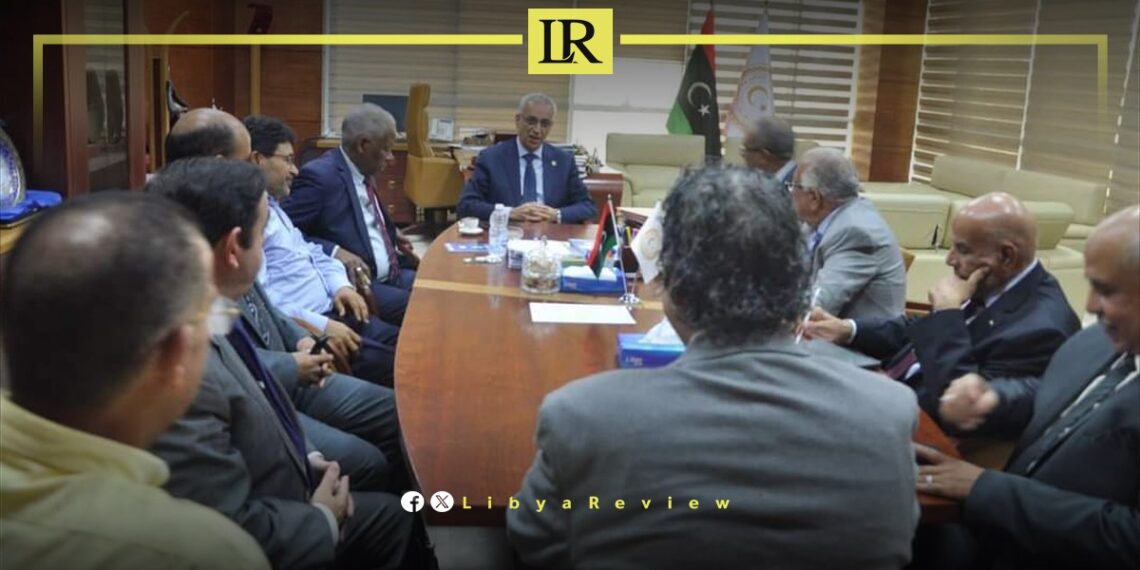On Tuesday, Libyan Minister of Housing and Reconstruction, Abubakar Al-Ghawy, welcomed Dr. Sayed Ismail, Egyptian Deputy Minister of Housing, and his delegation. The meeting also included Abdul-Mawla Azzouma, Deputy Minister for Affected Areas.
The discussions aimed at enhancing cooperation in housing and related sectors, with a focus on coordination between the two ministries under the national plan for sewage and water supply.
The meeting highlighted potential partnerships with Egyptian companies to execute various future projects. An upcoming workshop in Tripoli was also discussed, where the Egyptian delegation will present new ideas and insights, followed by a planned visit to the Third Ring Road project.
Dr. Sayed Ismail expressed gratitude for the warm reception and conveyed greetings from the Egyptian Minister of Housing, Eng. Sherif El-Sherbiny.
He praised the constructive cooperation between the two sides and emphasized the importance of continuous communication and collaboration. Dr. Ismail highlighted the capability of major Egyptian companies to execute and rehabilitate projects due to their extensive experience.
The discussion also included establishing a cooperation protocol between the regulatory body and the ministry, in conjunction with the Project Authority. This body plays a vital role in prioritizing and evaluating projects both technically and financially. An agreement was reached to hold a meeting between the ministry and the regulatory body to explore the feasibility of creating a similar body in Libya.
Minister Al-Ghawy invited specialized Egyptian urban planning companies to share their expertise and enhance Libyan urban planning strategies. Dr. Sayed Ismail underscored the importance of learning from Egypt’s success in addressing informal settlements, noting Egypt’s achievement in rehabilitating 112 informal areas around Cairo. This success serves as a model for Libya, which faces its own challenges in urban development and housing.
The ongoing collaboration between Egypt and Libya is part of a broader effort to rebuild and modernize Libya’s infrastructure, severely impacted by years of conflict. With international support, the Libyan government is focused on addressing the housing crisis, improving urban planning, and enhancing public services.


